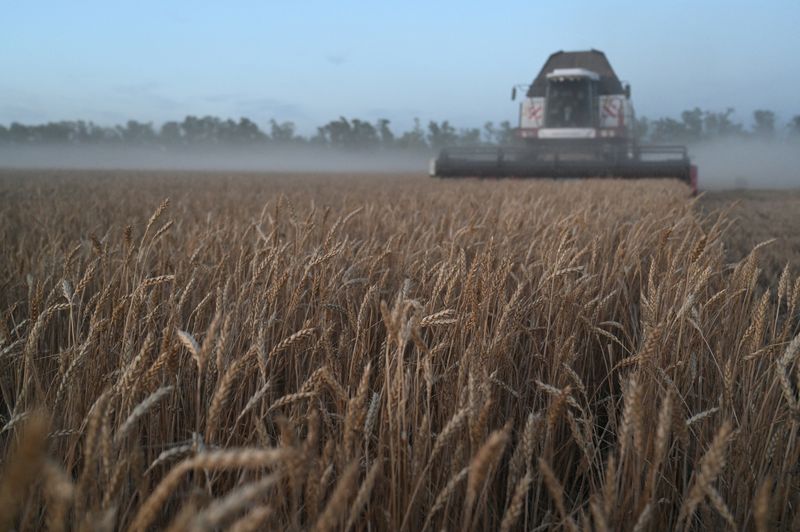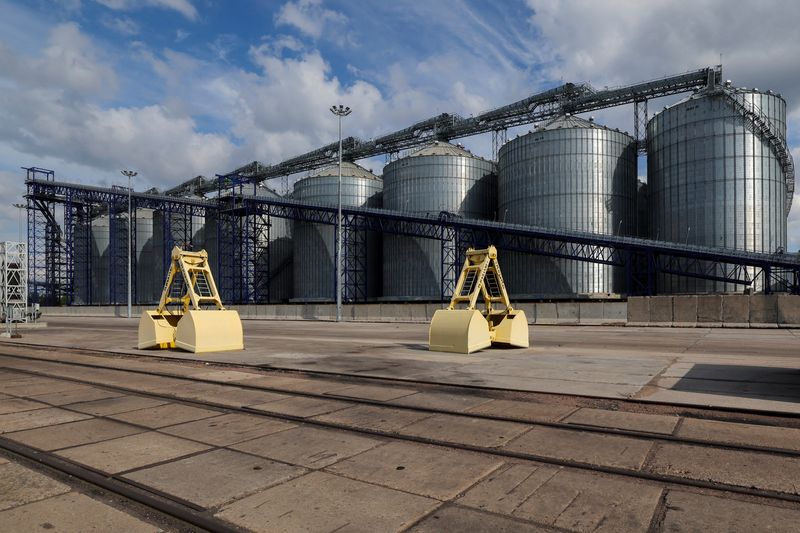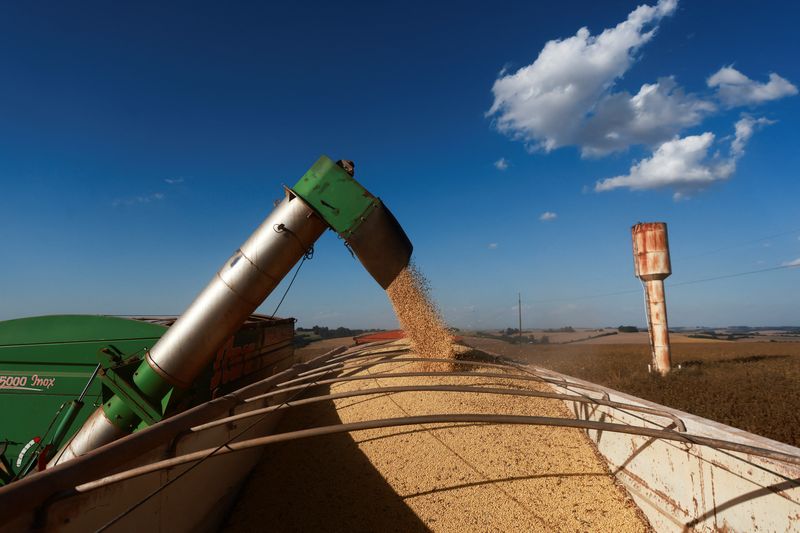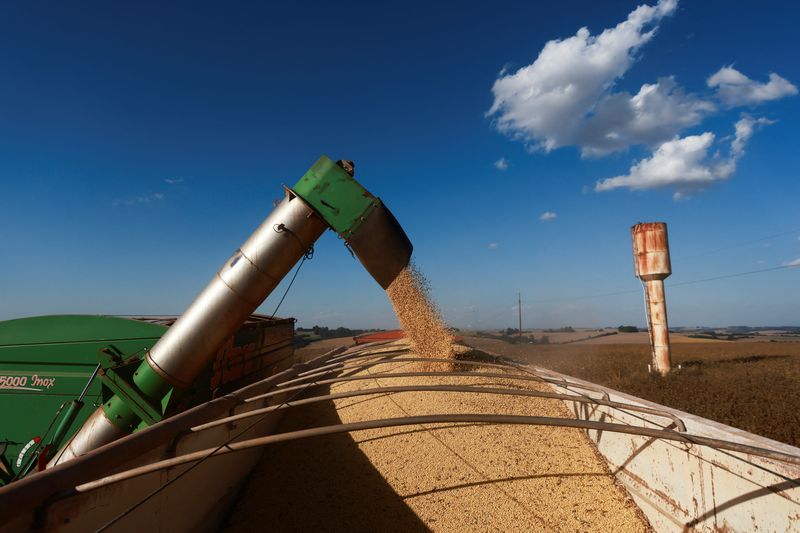
By Olga Popova and Gleb Stolyarov
MOSCOW (Reuters) – Russia, the world’s leading wheat exporter, is expanding its Baltic Sea ports as it aims to boost agricultural exports by 50% by 2030 while reducing dependence on traditional Black Sea routes, officials and executives said.
The country, which exported at least 72 million metric tons of grain in the 2023/24 season, is looking at new markets in Latin America and Africa to diversify from its traditional grain markets in North Africa and the Middle East.
It has relied on its Black Sea ports to handle booming agricultural exports for the past decades but the conflict with Ukraine has made the area risky for shipping with both sides regularly striking each other’s facilities and infrastructure.
“Last year with its record harvest showed that with the pace of loadings for exports, we do not have enough capacity,” Ksenia Bolomatova, deputy head of state-controlled agricultural conglomerate OZK, which owns several Black Sea terminals, told an industry gathering in Sochi in southern Russia.
In the last 18 months, Russia has launched two major ports, Vysotsky and Lugaport, in the Gulf of Finland, not far from St. Petersburg, President Vladimir Putin’s hometown.
Vysotsky shipped its first grain in April 2023, while Lugaport began operations in June this year and capacity is expected to reach 7 million tons by early 2025, according to its owner Novaport.
Dmitry Rylko from the IKAR agricultural consultancy said the two ports will be able to handle up to 15 million tons of agricultural exports, including grain, per year.
That would account for a quarter of Russia’s 60 million tons of grain exports forecast for the 2024/25 season.
Private firm Primorsky UPK is also planning a grain terminal at Primorsky port with capacity of up to 5 million tons.
EXPORT CONSTRAINTS
Putin set out a goal to increase agricultural exports by 50% by 2030 as part of a strategy to cement the country’s position as an agriculture superpower along with Brazil, the United States and China.
Russia has become the world’s biggest exporter of wheat, corn, barley, and peas in the last decade, but further growth could be constrained by shipping capacity bottlenecks.
Many Russian ports announced plans to boost capacity after record harvests in the last two years. The Baltic Sea terminals are expected to expand at a faster rate.
“The expansion of the Baltic Sea terminals’ capacity is a question of economic and transport security and sovereignty,” Novotrans said in an emailed comment.
Russian trade flows and shipments have so far seen no major disruptions in the Baltic, where 96% of the coastline belongs to NATO members, including Finland and Sweden.
By contrast, disruptions are rising in the Black sea and could reduce global grain supplies, according to a report by the World Bank. Two weeks ago, a Ukrainian vessel carrying grain to Egypt was hit by a missile.
In August, Russian local authorities said Ukraine sank a ferry carrying fuel tanks in Port Kavkaz, which is also used for transshipment of grain.
ECONOMIC APPEAL
Russian exported 62 million tons of grain by sea in the 2023/24 season with 90% of supplies going via the Black Sea, mostly to markets in the Middle East and North Africa. This share is set to fall as Baltic Sea infrastructure grows.
Baltic Sea ports loaded 1.5 million tons of grain last season, a three-fold increase from the previous season but still just 2.4% of overall Russian exports, according to Reuters calculations based on publicly available data.
“Logistically, the Baltic has many advantages for grains exports,” said Darya Snitko, vice president for Gazprombank, one of Russia’s largest banks and one of the biggest lenders to farmers.
She said the ability of Baltic terminals to handle bigger ships should help reduce overall costs.

“Supplies from the Baltic Sea beat (economics of) shipments from the Azov-Black Sea area when trading with countries in Africa outside the Mediterranean as well as Asia,” she added.
Vysotsky has been sending grain to Algeria, Brazil, Cuba, Mali, Mexico, Morocco, Nigeria and Tunisia, according to data from logistics company Rusagrotrans.
This post is originally published on INVESTING.



